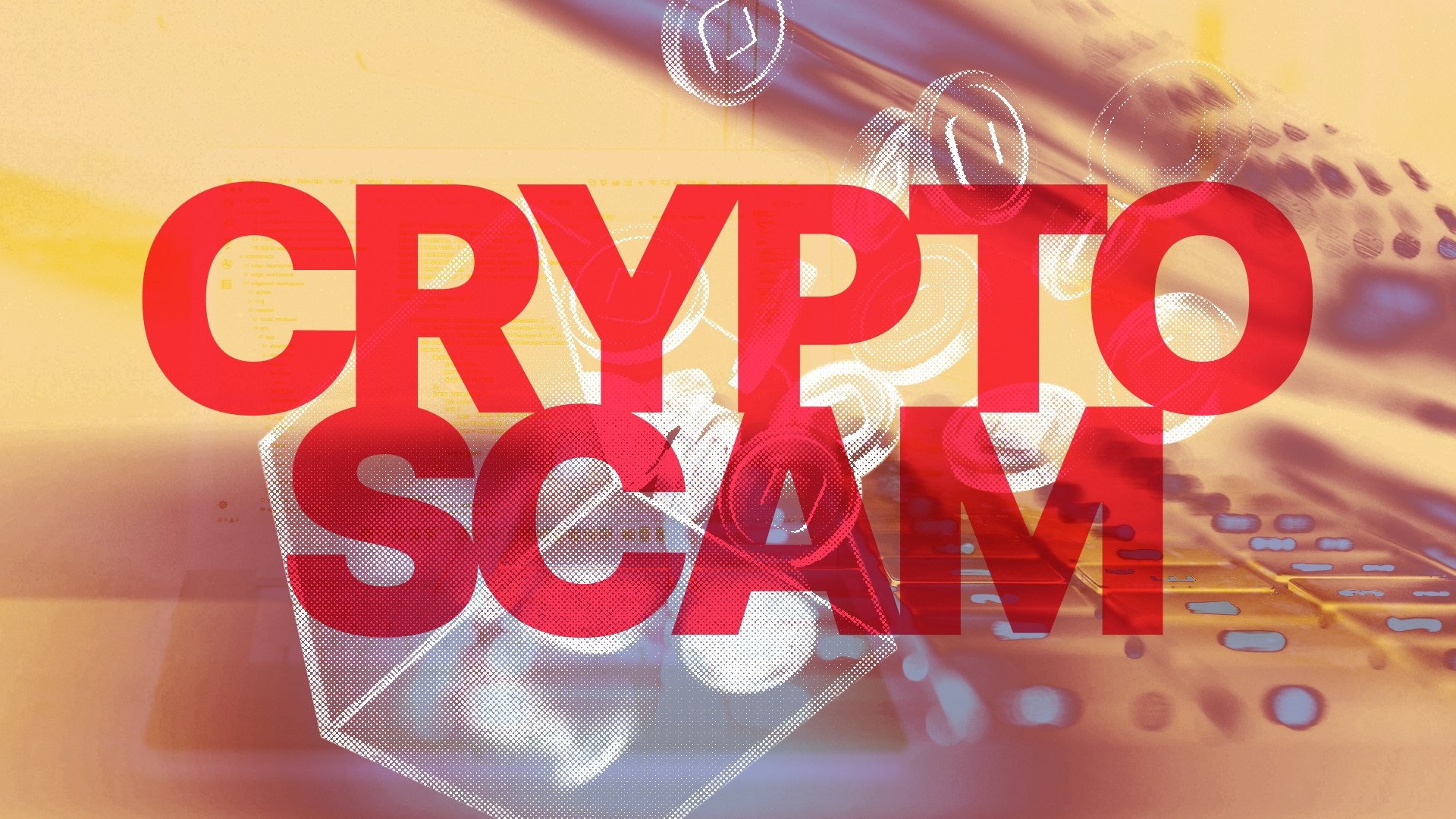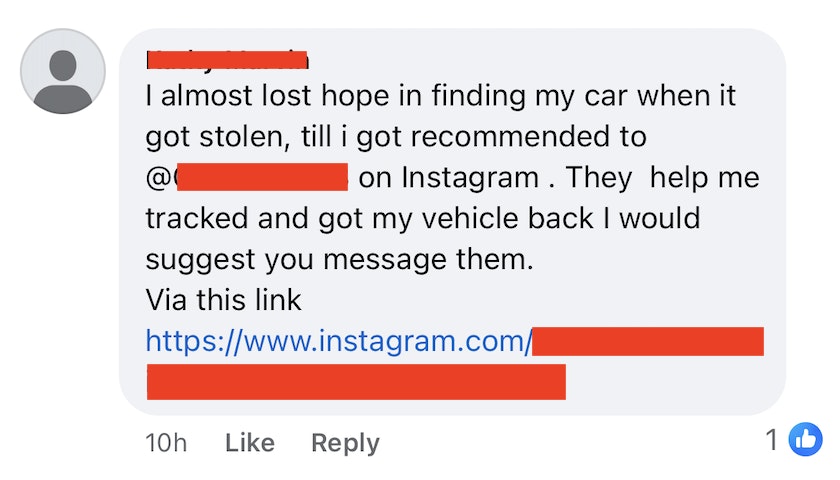Christmas Scams: Tips to Stay Safe During the Holiday Season
New scams are on the loose. Here's one to be careful of at Christmas time.
In this article...
- Scams are everywhere, in every industry
- Christmas is no exception!
- Here are the red flags to look out for

Christmas Scams are everywhere, and this holiday season is no different. We’re going to walk you through three different types of scams and how you can spot them and stay safe.
Shopping scams
On Facebook, an ad shows pallets advertised as being filled with Amazon returns for a fraction of their actual value. It sounds amazing, and perfectly timed – it’s the holidays and it’s just what you needed. Amazon does have a return pallet program, but last we checked it’s only available in the US – and surely legitimate Amazon return pallets are never sold this cheap.

Scammers use these unrealistic prices to people’s excitement about scoring a deal. This is unfortunately just one iteration of the same kind of scam.
In the next ad we see, the promise of a "mystery box". It contains expensive items like iPhones, which is another red flag. Claims of exclusivity or limited-time offers, such as “only sell two weeks out of the year,” are tactics designed to pressure you into acting quickly without verifying the legitimacy of the seller.

Red flags to watch for
Check the URL / website name. Scammers often use fake company names or URLs that mimic reputable sites but subtly differ — like swapping letters or adding extra words. Sometimes they use websites that make no sense when you read the link out loud, or don’t seem like real words at all.
Be wary of deals that claim extreme urgency, like "only two weeks a year" or "last three days," as they rely on FOMO (fear of missing out) to pressure you into impulsive purchases.
Avoid links directing you to unsecured or sketchy websites where you’re asked to input sensitive payment information.
Does the deal make sense? If not, it’s too good to be true.
Protect yourself by sticking to trusted marketplaces, researching companies, and remembering that true bargains don’t need to be rushed.
Delivery Scams
Delivery scams involve scammers sending text messages pretending to be reputable postal services, claiming a delivery failure and prompting recipients to click on a link to reschedule.
These links lead to fake, fraudulent websites that closely mimic the real postal websites, aiming to harvest personal and financial information. These messages are sent hoping that you might actually be expecting a real parcel to arrive and, in the stress of rescheduling the parcel, forget to check the website you enter your details into.
Several red flags can help identify these scams
Suspicious sender details: Messages originating from random or unfamiliar numbers.
Poor language use: Texts containing unusual capitalisation or grammatical errors.
Odd timing: Notifications received at unusual hours, such as early morning.
Inaccurate URLs: Links that do not match the official web addresses of the purported organisations.
Unexpected deliveries: Alerts about deliveries when no packages are anticipated.
By staying vigilant and recognising these warning signs, you can protect yourself from falling victim to this type of scam. If you want to learn more, you can read about CoinJar’s investigation into a “failed delivery” scam .
Community trust bait scams
Scammers are becoming increasingly creative in how they exploit trust, especially in community Facebook groups. One rising scam involves compromised accounts posting comments on local posts about stolen items, such as a car, laptop, or other personal belongings.
These comments often appear helpful at first glance, saying something like, “You should talk to this person, they helped me get my item back.”
While it doesn’t involve the usual promises of money recovery or investment returns, it’s just as deceptive and dangerous.
Here’s how it works
The scammer hijacks a legitimate Facebook account, often one belonging to a trusted community member, and uses it to post these misleading recommendations.
The goal is to trick victims into reaching out to a so-called “helper,” who is, in reality, part of the scam – probably the same person who compromised the Facebook account in the first place.

Once contact is made, the scammer may request sensitive information, charge upfront “fees” for their services, or even send malicious links. The entire scam preys on the sense of trust and goodwill fostered in community spaces. The scammer will only take your money and make excuses for their lack of results.
If you see comments like these in your local groups, take a moment to pause and question their legitimacy. You should also use the ‘report’ option on these comments to make sure the comments are reported to group administrators and removed or hidden to protect other group members. In addition, you can report the commenter’s account or profile and their activity to most social media platforms for review.
What can I do to fight scams?
Read our on how to protect yourself from financial scams If you see something, say something. Make a report to local scam authorities or social media platforms about suspicious or fraudulent activity.
Never make a rushed or pressured decision about your money.
Have open and honest conversations with friends and family members of all ages about financial scams – education and knowledge are the key to staying safe.

Suggested Articles
What is Ethereum? What is ETH Used For?
Ethereum is a decentralised blockchain-based open-source software platform that allows for the development of decentralised applications (dApps).What is Bitcoin (BTC)? What is "Digital Gold" Used For?
What is Bitcoin? It is a digital currency that can be traded, exchanged, and used as a form of payment independent of central banks and governments.What Is Crypto? How do Cryptocurrencies Work?
Crypto has become incredibly popular. But how does this digital currency work? And are there cryptos other than Bitcoin?Browse by topic
CoinJar’s digital currency exchange services are operated by CoinJar Australia Pty Ltd ACN 648 570 807, a registered digital currency exchange provider with AUSTRAC.
CoinJar Card is a prepaid Mastercard issued by EML Payment Solutions Limited ABN 30 131 436 532 AFSL 404131 pursuant to license by Mastercard. CoinJar Australia Pty Ltd is an authorised representative of EML Payment Solutions Limited (AR No 1290193). We recommend you consider the and before making any decision to acquire the product. Mastercard and the circles design are registered trademarks of Mastercard International Incorporated.
Google Pay is a trademark of Google LLC. Apple Pay is a trademark of Apple Inc.
This site is protected by reCAPTCHA and the and apply.